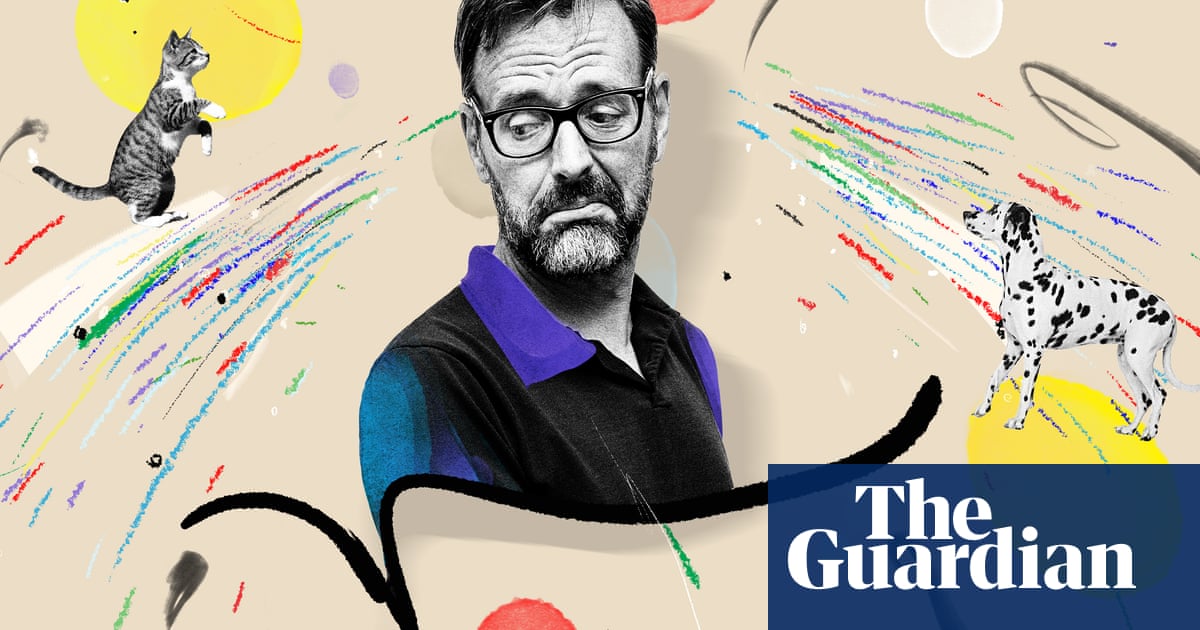After an hour’s work on a hot morning I leave my office shed and return to the kitchen for a coffee. Halfway there I find the tortoise lying on his back on the path. He can’t have been there for more than an hour, as he wasn’t there when I came out.
“What happened to you?” I say, setting him on his feet. But it’s pretty obvious what happened: he tried to exit the garden bed by climbing over the border of diagonally laid bricks and overbalanced. It’s an obstacle he surmounts without difficulty between five and 10 times a day in the warmer months, but occasionally – perhaps once every four years – he puts a foot wrong. So far, I have always been there to turn him back over.
The mishap comes less than a week after he made hisfirst serious escape bid in about a decade, slipping out through the open side door and getting all the way across the street before some estate agents found him. It’s easy to think of the tortoise as being self-regulating and largely content, when in truth he is simultaneously vulnerable and wily – always probing the garden’s perimeter for security weaknesses.
“Let this be a reminder of how poorly you’d fare out there,” I say, pointing towards the road. Then I walk away, because the tortoise always gives the impression of preferring to be left alone with his humiliation.
In the kitchen I find the oldest one drinking a large coffee and staring at his laptop. He works from home on certain unspecified days of the week, this apparently being one of them.
“Hey,” I say. He watches as I go to the coffee machine, empty out the old grounds and fetch myself a cup.
“There’s no milk,” he says.
“Ugh,” I say. “Now I have to put on shoes.”
Stomping to the shops, I think about the sudden spike in our milk consumption. The oldest one has returned home indefinitely. Because of this his brothers drop by more often, generally without warning. Supper plans get changed, beers are opened and the evening is suddenly dominated by frankly insane arguments about the middle ages. It’s not that I don’t enjoy the sound of a house filled with merry laughter and clinking glasses, it’s just that I’ve got used to having all that by prior appointment only.
The shop is out of two-litre containers of milk, so I buy two one-litre containers. I have a strong urge to write my name on one of them.
In the afternoon the day turns hotter still. The tortoise sits outside my office door in the shade of a rosemary bush, perhaps imagining for a moment that he’s back home in Greece – a place, I would like to remind him, where I’ve seen lots of empty, bleached, upside down tortoise shells lying around. The sky turns hazy and the air grows close, as if presaging a coming storm. But then the sun comes out again.
I start thinking about supper, but this raises a question I can’t answer: how many will we be?
The tortoise has pushed himself deeper into the rosemary, which is where he’ll spend the night. I head to the house to assess the situation. My wife and I arrive in the kitchen at the same moment, from opposite directions.
“What are you doing in here?” she says.
“Never mind that,” I say. “What are you doing in here?” There is a thoughtful pause.
“Can’t remember,” she says.
A key turns in the front door lock, and the middle one walks in. His hair is matted to his head, his sleeves are dripping on to the floor, and his shoes squelch as he walks.
“You’re soaking wet!” my wife says.
“I just got caught in the worst downpour I’ve ever seen,” he says.
“But it hasn’t rained here at all,” I say.
“Hail, lightning, flash floods, everything,” he says. “It was crazy.”
“Take everything off and put it in the dryer,” my wife says.
“Not a drop,” I say, “I was going to water the garden later.”
The oldest one walks in.
“What happened to you?” he says.
“Do you want to stay to supper?” my wife says.
“Yeah,” the middle one says, a puddle forming under him.
“So that’s four,” I say.
“No, I’m going out,” the oldest one says.
As I stare into the fridge it occurs to me that the more often people are here, the more likely it is someone will find me when I end up on my back on the garden path.
